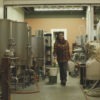
Company/Organization Profiles | Film Funding | Interviews | Local Industry
For the Indie Doc: Susan Walsh
Written by Lorre Fritchy | Posted by: Anonymous
The Center for Independent Documentary, based in Newton, MA, is a one-of-a-kind organization dedicated to helping area filmmakers take their docu-vision from start to finish. In 1997, the CID was honored with the Commonwealth Award for Outstanding Cultural Organization in Massachusetts. Its executive director, Susi Walsh, talked to NewEnglandFilm.com about CID’s projects, goals, and the power of the documentary.
LF: What does CID do?
WALSH: We work with independent filmmakers to help them take their ideas and do a complete film. Filmmakers apply to work with us and once we decide to collaborate on a project, we give it whatever support services we can to make it happen. That might mean helping them raise money, helping them with the concept of their program, offering them equipment, assisting with the budget, overseeing their funding. Then, when it’s completed, we help them get it out into the world. We help them find a distributor, or we help them figure out how to distribute it themselves if that’s what they choose. We try to help them make that choice, and put together a promotional campaign. Then, if it’s appropriate for public broadcast or broadcast, we help them make sure that happens, too.
LF: Are there Centers in every major city? Who founded this Center, and who funds it?
WALSH: As far as I know, we’re the only ones in the country. It was started in 1982; I’ve been executive director since 1983. My partner, Fred Simon, has been there the same length of time. Money was put into the cable franchise for the City of Newton to produce high-quality, educational programming. We did that, and in addition, the programming went beyond Newton with the concept we came up with, which was to work with independent filmmakers, who were an untapped resource who could produce excellent programming at a low cost. We were the ones who originally proposed the concept to the Board of Trustees, who loved the idea and supported it wholeheartedly. But in 1990, the cable license agreement was renegotiated for the City of Newton, and we lost all of our funding. Now we earn some of our revenue, but the Massachusetts Cultural Council is our major funder; also, the LEF Foundation.
LF: How many projects in the works?
WALSH: We have about 40 different projects in various stages of production. They’re all different kinds of subject matters, really varied producers, geographically and aesthetically. Ten percent of the projects haven’t been started, but the rest are in production or post.
LF: What is the current reception for documentaries as an art form?
WALSH: I think you see a decline of the documentary on television. Particularly for the funding of it, it’s gotten more problematic. I haven’t noticed as many young people interested in the documentary, young producers. We don’t see as many of them as I’d like to see. They seem more interested in narrative in general.
LF: Do you have a limit of how many projects you take on each year?
WALSH: No limit. It’s more based on the kind of resources the people might need, and some projects will require a lot more assistance. It just depends on where our organization is and how stretched our resources are, whether we’ll be able to consider taking applications. I couldn’t give a hard number, but we turn away many, many more than we accept.
LF: But the process is open?
WALSH: At any time. They should contact Fred Simon; he’s the executive producer. And he’s the right person for them to talk to about project concept.
LF: What is your highest hope for the Center?
WALSH: Continuing to do really strong documentary work that makes change in people’s lives. Fred did a piece called "Frank: A Vietnam Veteran" in 1981, which is still in some ways an unprecedented television event. The program was about one Vietnam veteran and was broadcast nationally on public television. We set up phone banks in every major city in the country, and the phones were staffed by Vietnam vets. When the program aired, there was a phone number for people to call and talk to another Vietnam vet. We logged–these are only the phone calls that were written down–over 11,000 phone calls. I know from those calls that the program had a real impact on people’s lives. Ideally, there are two components to [the documentary]: one is creating the excellent programming, and two is doing the outreach to let people know about it so they are able to see it.
LF: What do you see as the future of the documentary?
It would be great if channels were more interested in showcasing lower budget indie social issue documentaries. Public television still remains the primary home for this kind of work. At the NAMAC conference this year there was some discussion about the future of the documentary- and real concern for air time for the form.
I think there are styles that come in and out of favor and fashion, even among filmmakers. All of a sudden everybody wants to do a narrative. It seems like there are times when that’s the important, popular thing to do, and I’m sure that eventually people will be coming back to an interest in the documentary and documentary form. I wouldn’t say that nobody’s interested. Boston has one of the largest and most active documentary-filmmaking populations in the country.
LF: Do you need help, interns?
WALSH: The project people sometimes need help in production, and yes, there are times when I also need help. That would be great. If people were interested, they could email me at WalshCID@aol.com.
For more information, contact the Center for Independent Documentary, 1608 Beacon Street, Waban MA, 02468, Phone: 508-528-7279, Fax: 508-528-6415










